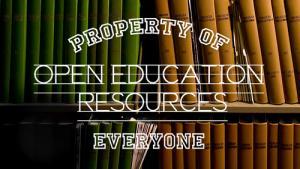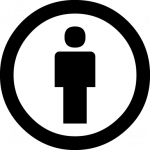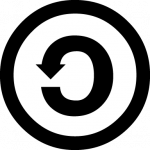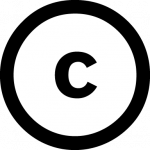
Image courtesy of opensourceway under a Creative Commons license: BY-SA
This course is no longer taught at the U-M School of Information. These materials are from an older iteration of the course.
This course introduces students to the ideas and practices surrounding teaching, learning and research at a world class research university like the University of Michigan, and the emerging role in these practices of Open Educational Resources, including open content such as opencourseware, open access initiatives, open publishing of research and learning materials as found in open journals, databases and e-prints, open textbooks, related open software efforts such as open learning systems, and emerging open teaching experiments. The course will ground the students in how teaching, learning and research is done at the university level, and then survey relevant OER efforts, looking at their history, development, potential futures, and the underlying motivations for their progressive adoption by various members of the community of scholars. more...
This course uses an open textbook Open Educational Resources at the University of Michigan. The articles in the open textbook (wikibook) were written by the School of Information Graduate students in the class.
Instructor: Joseph Hardin
Course Level: Graduate
Course Structure: Three hour class - once a week
Student Authors: Mark Fleszar, Kim Hoff, Beth Ziobro, Mike Kargela, Tom Hayden, Elaine Engstrom, Katherine Marshall, Scott Berkley, Bobby Glushko, Travis August, Bryan Birchmeier, Samantha Bigger, Josh Ohlendorf, Eric Hansen, Heather Alderfer, Jessica Thudium, Lisa Bankey, Ashleigh Donaldson, Kathleen Ludewig, and Johmarx Patton
Learning Objectives
Student will understand and be able to apply:
Online tools and methods for learning and research: Including refereed publications, scientific data, searching tools and strategies, opencourseware and other open educational resources.
Library tools and methods for learning and research: how to use them and how these encompass, are different from, complement and/or are more/less effective than other online methods.
OER resources for research and learning - be able to identify where open access, e.g., or open textbooks, or open course content adds to, or detracts from, research and learning efforts or experiences, both in library and extra-library environments.
Understand how to evaluate materials that are available in different environments.
Understand how to use, and where appropriate, be able to contribute to, open materials.
Have control over: The underlying skills and practices of scholarly research and teaching and learning at a university. Basic conversation around OER – what are the underlying values driving its development; what are the societal benefits and costs; what are the targeted user groups; what are the institutional benefits and costs of its generation and availability; what are the benefits and costs for faculty, students and alumni of OER; what are the values for self-learners. How to identify OER. How to create and contribute OER. How to help others, including faculty, create OER.
Students will learn what OER are, how they fit into the knowledge work of a large university, and the context in which they have grown up, with a focus on the emerging communities of OER development at the University of Michigan.
Currently we are planning on an hour spent with each of the experts and project participants, and possible in depth interviews, as parts of student-selected project work, with them and/or other participants in the various projects, as we go through the course.
The course grade will be composed of:
A) Contributions to a class wiki, including chapter synopses, reviews of readings, speakers and student-chosen research areas – these will be individually assigned, ie, each student will do reviews, etc of some, not all, of the readings, speakers, etc.
B) a final exam covering readings, class speakers, wiki development, and lectures.
C) a project consisting of an at least 8-page student analysis of an aspect of one of the OER Communities covered in the course, or another similar project the student identifies in concert with the instructor; OR students have the choice to participate in the dScribe initiative, under the direction of the instructor and SI graduates working on the Open.Michigan initiative, to fulfill the project requirement.
D) participation on the class wiki, where we will be building references valuable for the case studies, putting the interviews and any course materials for discussion and Annotation and organizing and gardening as we go along. This may develop into an open textbook, modeled after those we will be discussing in the class, especially the UM ChemE model. Helping significantly to shepherd it is an option for the class project.
E) classroom participation over the semester, especially during the discussions with class speakers, asking questions, following up on areas of interest.
Weighting will be: A) 25% B) 25% C) 25% D) 20% E) 5%
Learning Outcomes
The goal of the course is to introduce students to effective practices for research and learning at the university, to learn how these practices are affected by changing information technologies and social norms, and to introduce students to the OER dimensions of research and education. The class will investigate how research and learning are done at a university, look at OER as a field of study, and be introduced to a set of interesting examples of OER at the University of Michigan. Throughout the course the class will learn about the process and practice of research, teaching and learning from the perspective of knowledge resources and their use, and to a developing set of criteria for describing, investigating, comparing, and ultimately evaluating these kinds of resources. The class will in the process learn about the communities of generation and use of these resources, and the social, technological and legal environment that they work in. This will all be furthered through the semester-long investigation of real-life examples of University of Michigan OER development communities.

Image courtesy of opensourceway under a Creative Commons license: BY-SA
Jump to:
| Document Title | Creator | Downloads | License |
|---|---|---|---|
|
Week 02: Opening Up Education - The Collective Advancement of Education through Open Technology, Open Content, and Open Knowledge |
Student Authors
|
||
|
Week 03: Opportunities and Challenges for Higher Education - JISC Briefing Paper |
Student Authors
|
||
|
Week 06: The Second Enclosure Movement and the Construction of the Public Domain |
Student Authors
|
||
|
Week 09: Health OER Assignment |
Ted Hanss
|
| Document Title | Creator | Downloads | License |
|---|---|---|---|
|
Week 01: OER and the University of Michigan |
Joseph Hardin
|
||
|
Week 02(a): ChemE Wikibook |
Peter Woolf
|
||
|
Week 03: OER Pitch to University of Auckland |
Joseph Hardin
|
||
|
Week 04(a): Copyright Basics |
Joseph Hardin
|
||
|
Week 04(b): dScribe |
Kathleen Ludewig
|
||
|
Week 05(a): Data is Different |
Joseph Hardin
|
||
|
Week 05(b): Data Sharing |
Philip Andrews
|
||
|
Week 10: Health OER |
Ted Hanss
|
| Document Title | Creator | Downloads | License |
|---|---|---|---|
|
Course/Resource Archive in Institutional Repository (October 2012) |
Joseph Hardin
|
||
|
SI 521 Textbook: Open Educational Resources at the University of Michigan |
Joseph Hardin and Student Authors
|
| Document Title | Creator | Downloads | License |
|---|---|---|---|
|
Student Class Notes for Winter 2010 |
Student Authors
|



